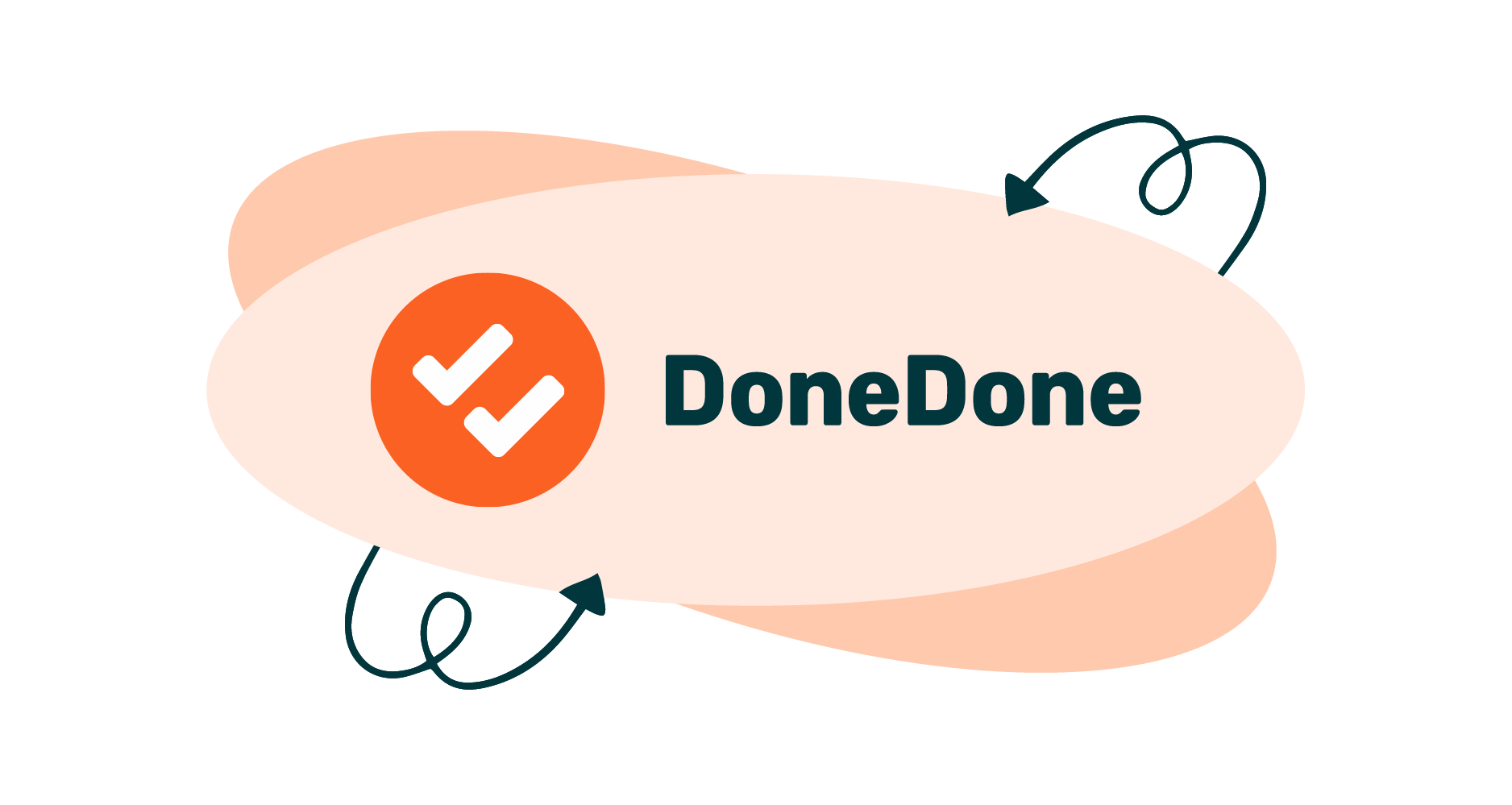It’s true: Things are never as simple as they seem at first glance. Especially in the context of customer support ticketing tools.
On the surface, it seems like all you need to do is find a cheap ticketing system, install it, and then you’re good to go. But if you’ve ever actually tried using one of these tools, you know that it’s not quite that simple. In fact, it can be downright complicated and frustrating.
But it doesn’t have to be that way. There are a few support ticketing tools out there that are actually designed to be simple and user-friendly. And believe it or not, these tools can be just as effective as the more complicated ones.
So what are the benefits of using a simple ticketing system? Keep reading to find out.
What does a ticketing system do?
Let’s start with some of the basics. A ticketing system is a software application that helps small businesses manage and track support requests. That doesn’t sound too complicated, right?
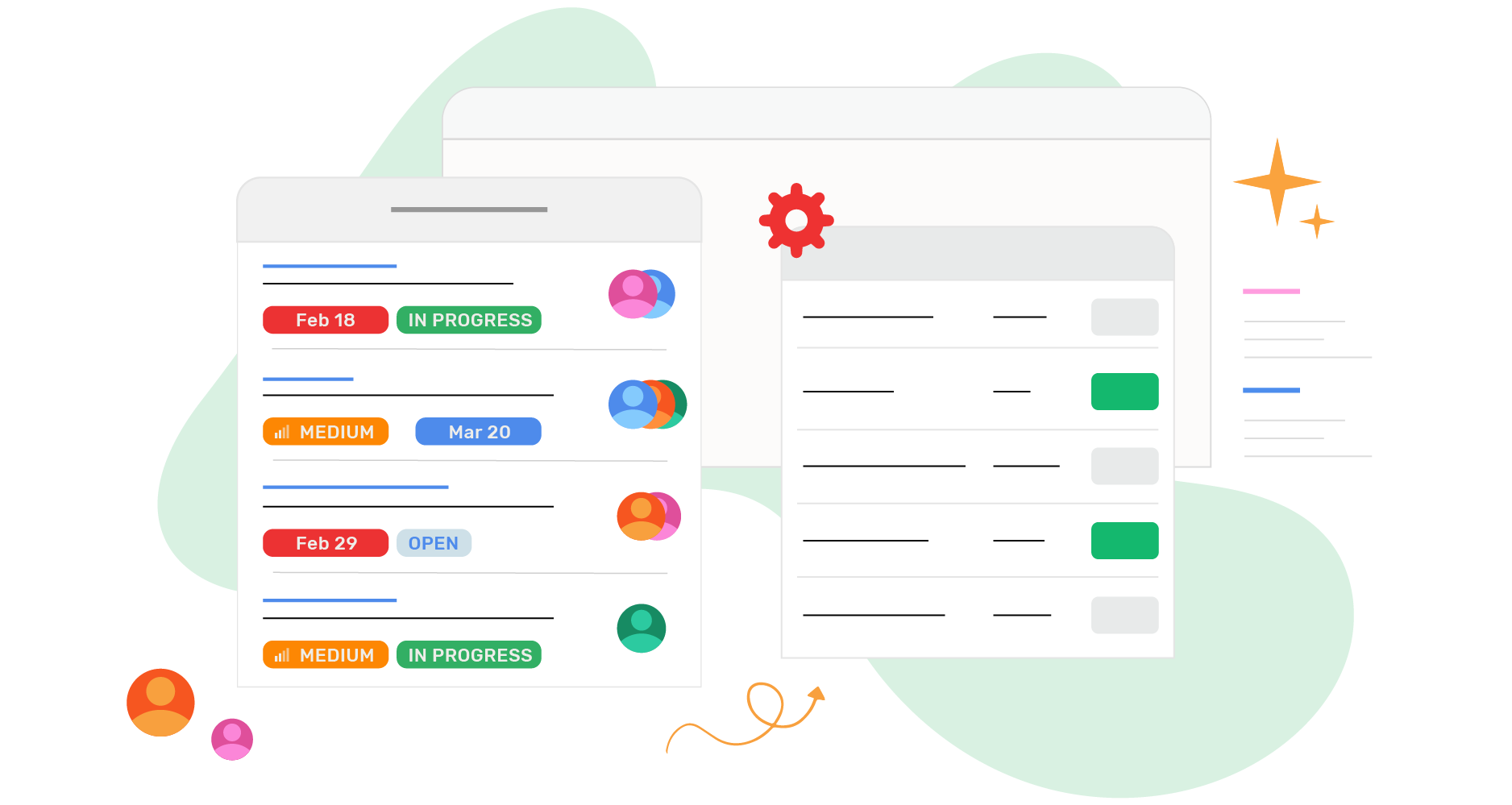
By using a ticketing system, small businesses can improve communication between their support agents, their various production teams, and ultimately their customers and clients. This can help ensure that the customer’s needs are always met which keeps customers happy and coming back to your business for more.
Ticket monitoring tools can also help small businesses keep track of support requests and issues so that they can be resolved more quickly and efficiently.
Now that we know a little bit more about what a ticketing system is and does, let’s take a look at how a ticketing system actually works.
How does a ticketing system work?
A ticketing system typically works by having the customer fill out a form or send an email to support that describes their issue or the problem they’re struggling with. This creates a “ticket” which is then assigned to a support agent.
The support agent will then work on resolving the issue either by themselves or by collaborating with their teammates and update the ticket accordingly. Once the issue has been resolved, the ticket is closed.
If you’re using a ticketing system, it’s important to make sure that your support agents are well-trained and know how to use the system properly. Otherwise, you’ll likely run into some of the same issues you would have without a ticketing system.
It’s also important that other teams, such as your marketing team, your design team, and your engineering team, are aware of the ticketing system and know how to use it. This way, everyone is on the same page and can easily communicate with each other to resolve customer issues more quickly.
For example, if a customer inquiry is related to a product or feature, then it will be important to loop in key stakeholders outside of the customer service team to either help with answering the question, or to be aware of a request. That way, those teams can keep tabs on how customers are using your product or service, and take actions based on those findings to improve your product or service in the long run.
Now that we know how a ticketing system works, let’s take a look at some of the benefits of using a support ticket system.
The benefits of using a help desk ticketing system
While email is still a very popular way to communicate with customers, a help desk ticketing system can provide a lot of benefits that email alone doesn’t offer.
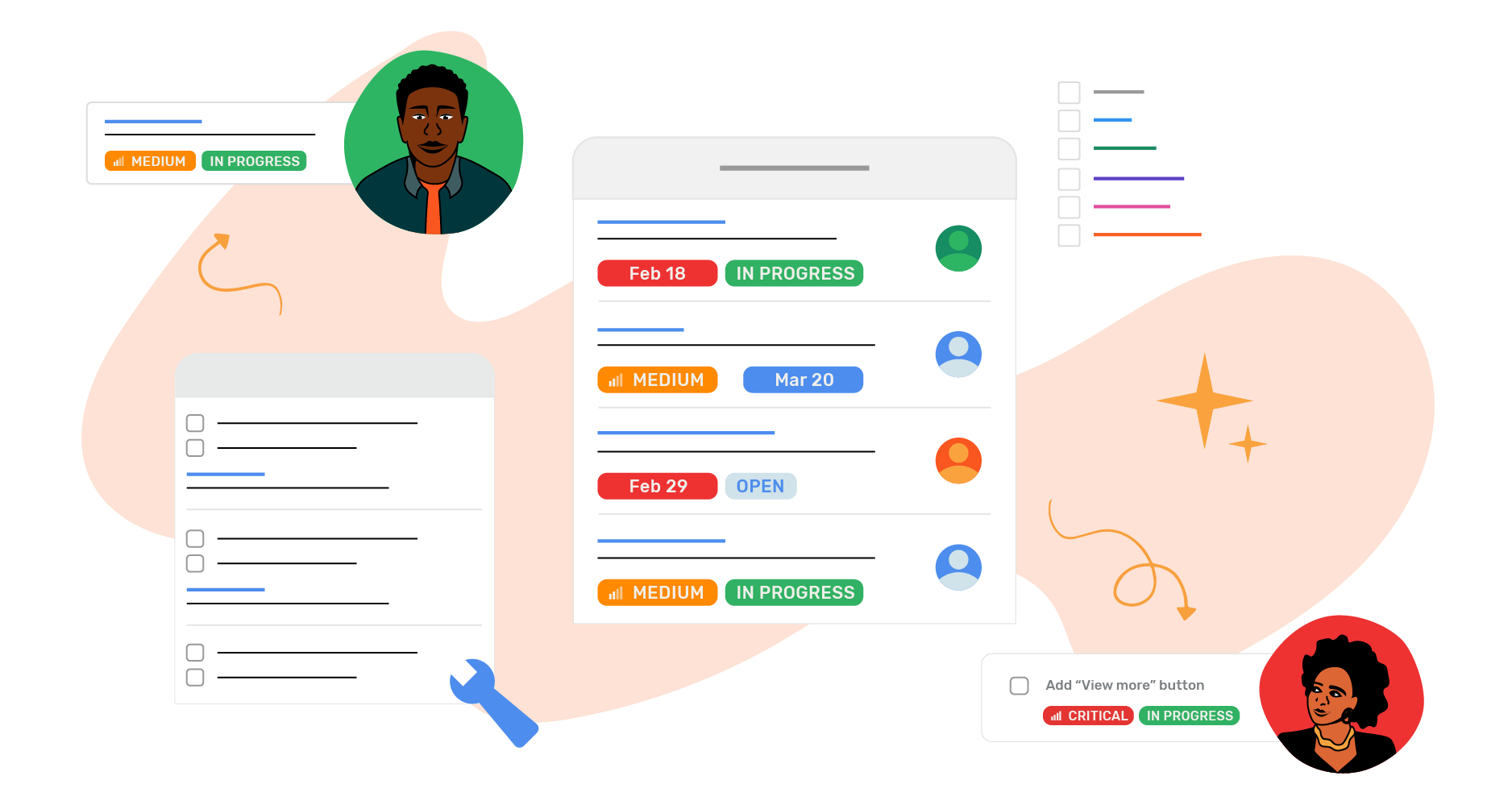
For example, a help desk ticketing system can provide:
- A central location where all customer communication and customer data is stored
- A history of all customer interactions
- The ability to assign and distribute tickets to the appropriate team members
- The ability to track ticket status
- The ability to set priorities for each ticket
- The ability to add notes and comments to each ticket
- Asset management to organize files related to service requests
- The ability to search through all tickets by any of the things mentioned above – assignee, status, or priority.
These are just a few of the benefits that a help desk ticketing system can offer. As you can see, a simple ticket tracking system can be a very valuable tool for small businesses.
The best trouble ticket system encourages and supports important values for your support team: accountability by assigning tickets, the prioritization of work by setting a priority for each ticket, and team collaboration by using help desk software that the entire team can use regardless of the department or skill level.
Why a complex help desk software can be frustrating
While a ticketing solution can offer a lot of benefits, a complex system can be frustrating and difficult to use.
For example, complex helpdesk ticketing systems can be difficult to learn and can be confusing for team members who are not familiar with it, especially if they don’t have a lot of experience working in tech. In addition, complex helpdesk ticketing systems can be slow and inefficient, and it can be difficult to find the information you need when you need it. These are all a barrier to adoption and success.
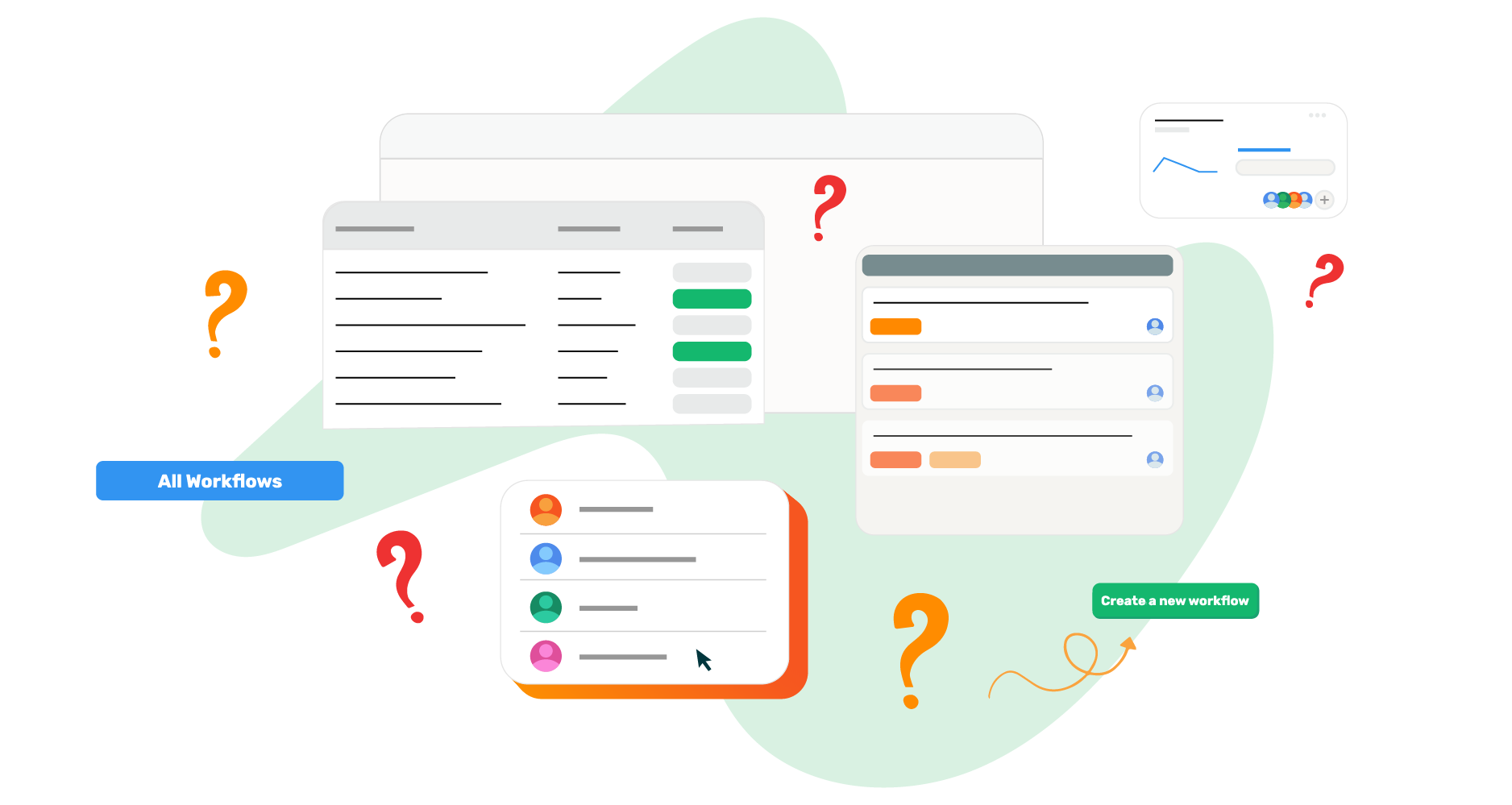
This is why it’s important to use simple help desk software that is easy to use and that everyone on your team can understand. It encourages all of your teams, not just customer support agents, to use the system and to collaborate with each other.
For example, a simple help desk ticketing software like DoneDone can be a very valuable tool for small businesses because it’s easy to use, encourages collaboration, and helps you keep track of customer communication.
In addition, a simple ticketing system like DoneDone can help your small business run more smoothly by providing a central location for all customer requests that engineering and sales teams can also use to share knowledge with the customer support agents to resolve customer issues more quickly.
Long story short, complex ticketing system software often isn’t adopted across different teams because it’s difficult to use and understand. A simple ticketing system, on the other hand, is easy to use and can be adopted by different teams within a company, which leads to better collaboration and faster customer issue resolution.
Why simple help desk ticketing systems are better for everyone
When it comes to help desk ticketing systems, simplicity is key. A complex system can be difficult to learn and use, which can lead to frustration among team members especially across different teams. In contrast, a simple system is easy to learn and use, which encourages collaboration and makes it easier for everyone on your team to communicate with each other.
A simple trouble ticket system like DoneDone is a great option for small businesses because it’s easy to use, encourages collaboration across different teams, and helps you keep track of customer communication.

Often times, support teams will need input from other teams like engineering or design. By using a ticketing system that is used by those teams as well, your support team doesn’t need to jump between different tools and can directly collaborate on the same ticket.
Haven’t you ever wondered why your engineering team uses Jira Software or Asana while your support team uses HelpScout or FreshDesk? Wouldn’t it be easier if both teams used the same ticketing solution? It’s always better when teams can work on the same ticket as needed. It’s even better when you only have to pay for one ticket management tool too especially as a small business when every penny counts!
How to find the best ticket management software for your business
When it comes to finding the best ticketing system for your small business, it’s important to consider a few factors to find the best ticketing software for your team and business.
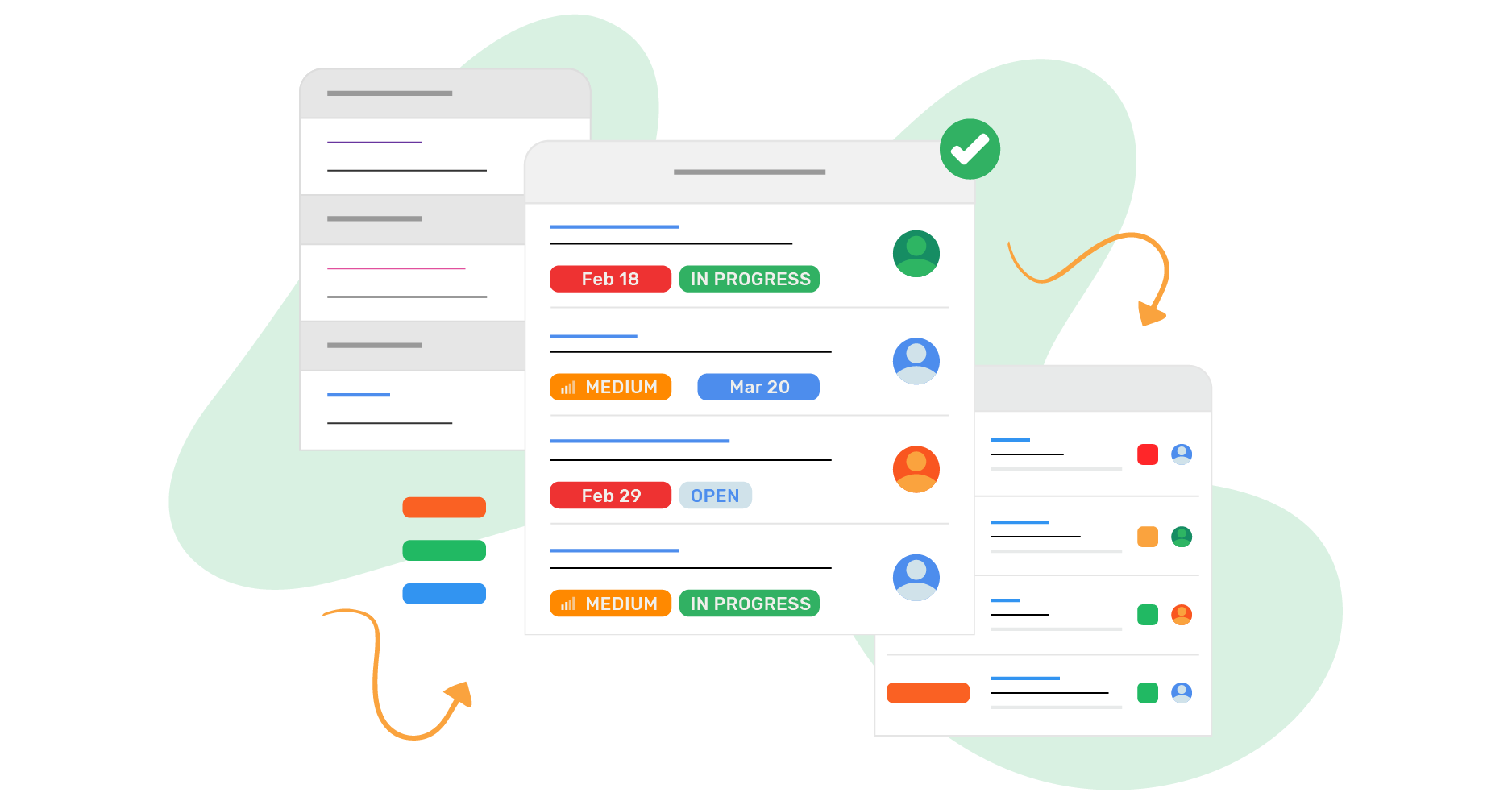
Know what you need the ticketing software to do
When looking for a service desk, the first thing you need to figure out is what you need it to do. What are your business’s needs? What are the specific tasks that need to be tracked? Which teams will be using it and how do you expect it to improve the team’s performance? Once you have a good idea of what you need the software to do, you can start looking at different options and narrowing down your choices.
Some things you may want to consider when choosing a ticketing software include:
-How easy it is to use
-How much it costs
-What features it offers
-Whether or not it integrates with other tools you’re using
Once you have a good idea of what you need, you can start looking at different options and compare them side-by-side. This will help you narrow down your choices and find the best ticketing software for your small business.
Do your research
When it comes to finding the best ticket management software for your small business, it’s important to do your research.
There are a lot of different ticketing systems out there, and it can be tricky to figure out which one is the best fit for your needs. A great way to figure out which helpdesk ticketing system is the best fit for your business is to read reviews and compare different options side-by-side.
This will help you get a better idea of what each option has to offer and whether or not it’s a good fit for your business.
Consider your budget
When it comes to choosing a ticketing software, budget is a hugely critical piece of the puzzle. Ticketing software can vary widely in price, so it’s important to find one that fits your budget. Generally speaking, the more complex the helpdesk, the bigger the budget needed to purchase the tool.
While budget is always important to consider, it’s equally important to understand the value in investing in the right helpdesk ticketing system for your team. Make sure to consider the impact to your team’s performance by adopting the right ticketing system.
A great way to get the most out of you budget is to avoid paying for complex features that likely won’t be adopted by your entire team. Instead, focus on the most important features that you know everyone will use.
Once you’ve considered your budget and considered its impact on team performance, you can start looking at different options and compare them side-by-side. This will help you find the best ticketing software for your small business.
Get feedback from your team
Before you choose a ticketing software, it’s important to get feedback from your team. They’re the ones who will be using the software on a daily basis, so it’s important to get their input before making a decision.
You can start by sending out a survey to get feedback on what they need from ticketing software. This will help you narrow down your options and find the best ticketing software for your team.
Once you’ve considered all of these factors, you’ll be well on your way to finding the best ticketing software for your small business.
When it comes to support teams in particular, a simple helpdesk ticket system can be a lifesaver. It can help your customer support team and production team work together more efficiently and effectively to ensure incoming tickets are always tended to in a timely manner.
Train your team on how to use the new support ticket system
One of the most important things you need to do when implementing a new ticketing system is to train your team on how to use it. This will help them get up and running quickly and efficiently.
This is another reason to prioritize simplicity when choosing new help desk software. A complex system will be more difficult to learn and use, which will make training more time-consuming and difficult.
Make sure to give your team plenty of time to learn the new system before going live with it. This will help ensure a smooth transition and minimize disruptions for your business.
The perfect ticketing system for small businesses
A ticketing system is a great way to manage customer support tickets and help your team work more efficiently. It can be a lifesaver for small businesses who want to ensure their customers’ needs are always met.
When it comes to choosing a ticketing system, it’s important to keep things simple. A complex system will be difficult to learn and use, which will make training more time-consuming and difficult.
DoneDone is the perfect ticketing system for small businesses because it is simple to use and everyone on your team can learn it quickly. It also integrates with other tools you’re using, which makes it easy to manage customer support tickets. Plus, it’s affordable and fits into any budget.
If you’re looking for a simple ticketing system that is perfect for small businesses, DoneDone is the way to go.
Don’t over complicate things with a complex ticketing system—keep it simple with DoneDone. Start a free trial today!
